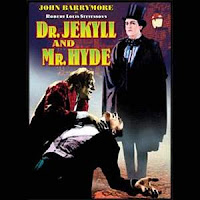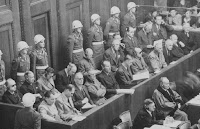 I wrote the following for the Bakersfield Californian when Castro was thought to be on his death bed in August 2006. I still like it. I'll post the Californian link later. Enjoy ...
I wrote the following for the Bakersfield Californian when Castro was thought to be on his death bed in August 2006. I still like it. I'll post the Californian link later. Enjoy ...
- Mark
After 46-plus years in power, the revolutionary movement that ousted military dictator Fulgencio Batista in 1959 has had some successes. For example, Cuba’s infant mortality rate rivals the U.S. and surpasses the U.S. in its inner cities. Investments in the medical field have paid off handsomely.
But the character and strength of Cuba’s revolution under Fidel Castro rests not so much in Cuba’s medical advancements. Indeed, if quality of life and standard of living have anything to do with Castro’s record, and it does, Cuba stands as a failure for the lack of freedoms and civil liberty guarantees that other Latin American countries enjoy.
Instead, Fidel Castro’s prestige and a good part of Cuba’s revolutionary success rests in how they have survived decades of U.S. efforts to regain control of the island. Castro has survived assassination attempts, a 40-year U.S.-led economic blockade, the collapse of its primary trading partner and more recent efforts, like the Helms-Burton Act (designed to punish corporations doing business on the island). Survival and longevity have allowed Fidel Castro and ordinary Cubans to come across as modern-day Davids, standing tall against the U.S. Goliath.
Fidel Castro’s global standing is especially significant given he didn’t start off as a Soviet puppet. His early track record of ignoring the socialists, his subsequent reversal and embrace of the Soviet Union, and his eventual back-peddling on revolutionary ideas best inform us about Cuba’s future after Castro is gone.
It’s not often acknowledged that Castro had, at best, cool relations with Cuba’s socialists and Marxists. In fact, like Batista, Castro didn’t initially recognize the Soviet Union when he came to power.
What drove Castro was nationalism, not communism. A student of Cuban history, Castro came to despise the U.S. for imposing the Platt Amendment on the Cuban Constitution. The amendment turned Cuba into a virtual U.S. protectorate. He hated how U.S. companies and jetsetters wielded financial power, while bringing bigoted attitudes that came with the times in the U.S.
Because of Castro’s fervent nationalism, most of Cuba’s elite and clergy initially stayed in Cuba after the revolution. To be sure, elites really wanted to preserve their privileges, but they also genuinely believed they could work with Castro. This is important because it showed that Castro was not only a nationalist, but viewed as a pragmatist.
In this vein, like the Peter Sellers character in “The Mouse that Roared,” Castro tried to play the U.S. and the Soviet Union against each other in an effort to secure resources.
This would all change after the U.S. began denying Castro certain raw materials and access to markets. When U.S.-owned refineries refused to process Russian crude in 1960, Castro began nationalizing U.S.-owned assets.
Political expediency, driven by economic realities, made Castro a communist and an outlaw in the eyes of the U.S. At this time, Castro realized something else: Defying the U.S. might bring assassination attempts, but it could also turn you into a national hero. For someone with Castro’s ego, becoming Public Enemy #1 in the U.S. wasn’t all that bad.
As a political chameleon, what really made Castro effective was the fervor he demonstrated once he embraced the rhetoric and policies of the socialists. However, Castro also engaged in policies and practices that frustrated revolutionaries throughout the world.
For example, after initially condemning Soviet tanks in Czechoslovakia in 1968 (arguing socialists don’t invade socialist states), Castro backed down. As well, Castro agreed not to support radicals and leftist guerrillas in Mexico in return for diplomatic recognition from Mexico.
On another level, Castro demonstrated he understood the capitalist money game when he allowed Cuba to play treasurer for Argentina’s infamous leftist revolutionaries, the Montoneros. After kidnapping the heirs to one of the world’s largest agriculture firms in 1974, the Montoneros were able to extort at least $64 million in cash. But they needed a place to store the money. After floating the money around European banks, they decided to place the money with a trusted and impartial player, Cuba.
Castro determined that the safest and most profitable place to hold the money was in New York banks. For a moment, forget the irony of U.S. banks holding funds for Latin American leftists committed to revolution. Instead, concentrate on the pragmatism demonstrated by Fidel Castro to use U.S. banks to manage money.
In the end, Castro’s political acumen goes a long way in helping us understand how he thwarted CIA-led assassination and coup attempts, avoided murder at the hands of frustrated leftists, and never experienced serious threats to his rule at home.
Working through his 10th U.S. president, whether we appreciate it or not, Fidel Castro has become a legendary figure in Latin America and around the world by doing more than hiding behind a façade of flowery rhetoric and indulgent dictatorship. Castro’s real legacy lies in instilling Cubans with the sense they no longer have to bend to the demands of the U.S.
Castro’s ghost will forever remind Cubans of this. And this is what will drive post-Castro Cuba and, more than anything else, will frustrate those in Washington who declared last week that the U.S. will again be directing things in Cuba when Castro is gone.
 Perhaps most importantly, he did it the moment he understood he was wrong. Lincoln’s legal colleague wrote, "It required no effort on his part to admit another man's superiority … [and] was perfectly in character."
Perhaps most importantly, he did it the moment he understood he was wrong. Lincoln’s legal colleague wrote, "It required no effort on his part to admit another man's superiority … [and] was perfectly in character."



















